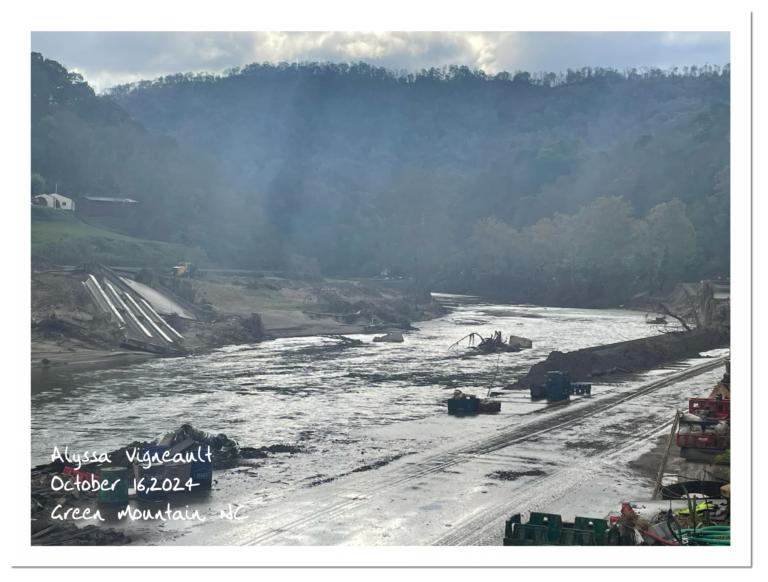

On September 26, 2024, Hurricane Helene made landfall, leaving a trail of destruction from Florida to Virginia. Western North Carolina and Eastern Tennessee were among the hardest-hit areas. Like many, I expressed my prayers for those affected. However, I didn’t fully grasp the extent of the devastation until October 1st.
That morning, after finishing work in Kentucky, I opened Facebook to see posts pouring in about the hurricane’s impact. It became clear to me that just watching from the sidelines wasn’t enough. People were being evacuated, and relief supplies were being airlifted to affected areas. I felt compelled to act. That same day, I created a group called Hope for Helene. The goal was simple: to share timely and accurate information to help those in need.


The group grew quickly, reaching over 1,000 members in a few days. People unable to physically make it to the affected areas began helping connect people with urgent needs to those who could provide support on the ground. By collaborating with local relief groups and sourcing reliable updates, Hope for Helene became a simple hub for information. Normal everyday people from Texas all the way to Maine unable to make it to the affected area were able to help individuals get off missing persons lists, find necessary resources, and begin the long road to recovery.
On October 15, 2024, a local group organized a hot meal for the community. However, attendance was low, not due to a lack of need, but because many people weren’t aware the meal existed. This inspired us to create Free Hot Meals for Helene Relief, (which turned into Free Hot Meals a few weeks later), an initiative aimed at promoting free hot meals in disaster zones through a centralized platform.


Our team quickly adapted to the dynamics of Facebook. By collaborating and sharing info into over 180 community and relief groups, we are ensuring that information about free meals reaches the right audiences in specific geographic areas. This approach has made us a trusted source of information for residents of Western North Carolina and Eastern Tennessee.
Looking ahead, we’re looking to become a nonprofit organization. This will enable us to fund relief efforts sustainably and ensure that meal providers in disaster zones meet food safety requirements while continuing their critical work. For example, one early meal we promoted served 1,180 portions of pulled pork sandwiches and Brunswick Stew, costing an estimated $3,000 when all said and done. While generous, such efforts are unsustainable without dedicated funding.


Through this work, we have the privilege of promoting amazing volunteers from across the United States who serve free hot meals and help hosts spread the word so people in the area know where they are serving any given meal. In the first few weeks of a disaster, these are the first home-cooked meals many people have eaten.
Hearing stories of how these meals provide not just nourishment but also a sense of normalcy and a vital community connection is profoundly rewarding. A hot meal is more than just food, it is a symbol of hope. Building relationships through shared meals builds trust, uncovers needs, and ultimately saves lives.


We are developing a three-phase food plan for disaster relief. This plan will cover the immediate aftermath of a disaster through to the final stages of recovery, ensuring that communities have access to nourishing food while rebuilding citizens lives and local economies. Currently we are collaborating with food service professionals and relief organizations to make this vision a reality.
If you’d like to support our efforts or collaborate with us, please reach out at info@freehotmeal.org. We’re always looking for help with data entry, chefs and food service professionals for planning, and volunteers to help our partners on the ground. Thank you for standing with us as we take the next steps to sustain and expand this vital work.
